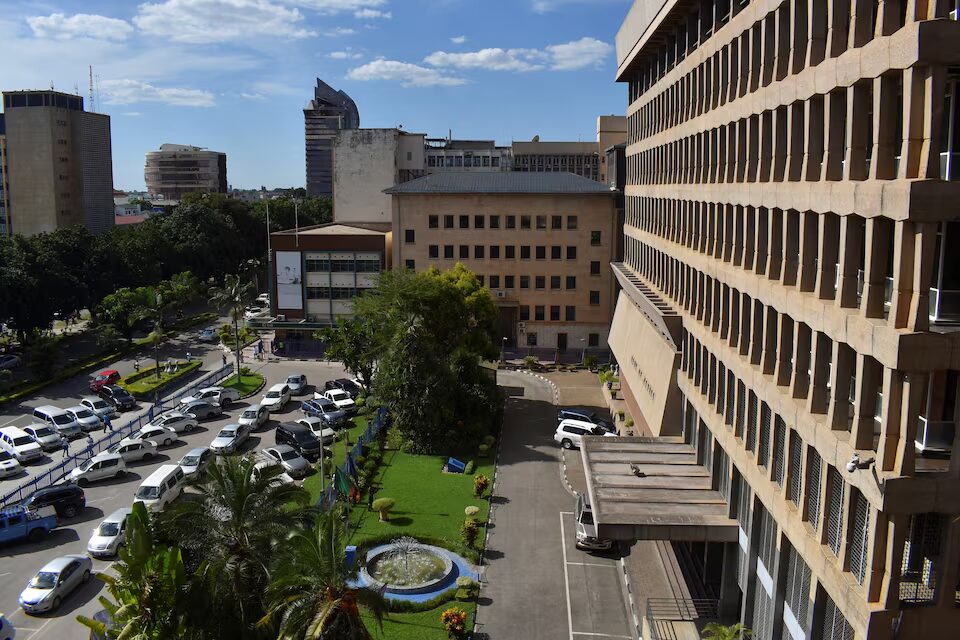
Wednesday, 5th February 2025

In a move set to bolster Egypt’s economic development, the Islamic Corporation for the Development of the Private Sector (ICD), the private sector arm of the Islamic Development Bank Group (IsDB), has signed the Country Work Program 2025 for Egypt. This agreement marks a strategic milestone in ICD’s ongoing collaboration with Egypt, reinforcing its commitment to strengthening the private sector as a key driver of economic growth.
Signed in Cairo in the presence of top government officials, the agreement will unlock $100 million in financing to support small and medium-sized enterprises (SMEs), industry, infrastructure, energy, and agriculture. It also aims to expand financial inclusion, enhance Islamic finance awareness, and attract foreign investments through sukuk advisory services and strategic alliances.
The signing ceremony brought together Egypt’s top economic decision-makers, including HE Dr. Rania Al-Mashat, Minister of Planning, Economic Development, and International Cooperation; HE Lieutenant General Engineer Kamel Al-Wazir, Deputy Prime Minister for Industrial Development, Minister of Industry and Transport; and HE Dr. Sherif Farouk, Minister of Supply and Internal Trade. The agreement was officially signed by Engineer Hani Salem Sonbol, Acting CEO of ICD, who emphasized the corporation’s ongoing commitment to Egypt’s economic transformation.
Speaking at the event, Eng. Kamel Al-Wazir highlighted the critical role of the private sector in Egypt’s economic progress. He noted that the Islamic Corporation for the Development of the Private Sector has played a key role in supporting OIC member countries with innovative financial solutions that stimulate economic growth, create jobs, and strengthen entrepreneurship. He emphasized that empowering small and medium-sized industries will be a focal point of this partnership, ensuring increased competitiveness in regional and global markets.
Dr. Rania Al-Mashat said that ICD has been instrumental in financing Egypt’s industrial and agricultural sectors, key pillars in the government’s structural reform agenda. She explained that the $100 million financing will strengthen SMEs while also providing support for large private sector enterprises in strategic industries. She added that the partnership will be essential in enhancing Egypt’s economic resilience and ensuring sustainable growth.
Since its inception, ICD has invested over $315 million in Egypt, supporting private sector enterprises, financial institutions, and key industries such as energy, food production, and manufacturing. The new $100 million financing package for 2025 will expand that impact by providing direct funding to private sector projects, enhancing financial inclusion through lines of credit to Egyptian banks, facilitating sukuk issuance to attract foreign currency investments, and supporting the Arab-African Trade Bridges (AATB) Program to increase trade and investment flows within Africa and the Arab world.
ICD’s Acting CEO, Eng. Hani Salem Sonbol, emphasized that this renewed commitment is a testament to the strong partnership between ICD and Egypt. He stated that the focus will be on strengthening SMEs and financial institutions while also providing expertise in sukuk advisory services to attract international investments. He further added that ICD will leverage its experience in structuring sustainable investments that balance financial returns with economic and social impact.
The ICD-Egypt partnership comes at a critical time as Egypt seeks to enhance economic resilience amid global financial pressures. By prioritizing SMEs, financial inclusion, and investment facilitation, this agreement aligns with Egypt’s broader vision of creating a dynamic, self-sustaining private sector.
With $100 million in fresh financing, Egypt’s businesses stand to benefit from greater access to capital, ensuring that both local entrepreneurs and international investors can participate in the country’s growth story. As Egypt continues to position itself as a regional economic powerhouse, strategic partnerships like this will be instrumental in driving long-term prosperity.


